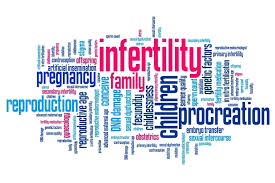Unveiling the Silent Stigma of Infertility in Africa
By Mackie M. Jalloh
In the dusty courtyard of a small village on the outskirts of Bo, Sierra Leone, 39-year-old Aminata sits with a distant look in her eyes. Married for over a decade, she’s endured the kind of grief words struggle to capture. Not because she lost a child—but because she’s never had one.
“I feel like a woman without a name,” she says quietly. In her community, her infertility has not only made her the subject of ridicule and suspicion—it has erased her identity.
Infertility, long shrouded in silence and superstition, remains one of the most misunderstood and stigmatized conditions in Africa. Despite medical advancements and global awareness efforts, in many parts of the continent, it is still treated more as a moral or spiritual failing than a health issue. The societal burden falls disproportionately on women, many of whom are abandoned, abused, or shunned for something that is often out of their control.
*Infertility: A Global Health Concern*
According to the World Health Organization (WHO), approximately 1 in 6 people globally experience infertility in their lifetime. In sub-Saharan Africa, the numbers vary widely due to limited reporting, but estimates suggest that as many as 30% of couples may face infertility, with primary infertility (the inability to ever have a child) and secondary infertility (the inability to have another child) both common.
However, unlike in high-income countries where infertility is often treated with medical empathy and advanced technology, in much of Africa, it is approached with suspicion, silence, or spiritual blame.

*In Sierra Leone: Where Motherhood Defines Worth*
In Sierra Leone, where over 60% of women give birth before the age of 25, infertility is seen not only as a personal tragedy but a public failure. The idea of womanhood is intimately tied to motherhood. A woman without children is often not considered a complete member of society.
“People assume I am cursed or that I committed an abortion in secret,” says Zainab, a primary school teacher in Kenema. “Even when doctors say the problem might not be mine, my husband’s family insists it’s me.”
In many parts of Sierra Leone, infertility is not acknowledged as a shared issue between couples. Male infertility remains taboo. Yet studies by the African Journal of Reproductive Health show that male-factor infertility contributes to up to 50% of cases in the region. Still, it is women who are almost always blamed.
*Stigma, Abuse, and Displacement*
The social implications of infertility in African societies are far-reaching. Women are often subjected to psychological, verbal, and even physical abuse. In-laws may pressure husbands to remarry. Communities may brand women as witches. In traditional households, especially those without strong legal protections, women may be divorced or disinherited for not bearing children.
In the Kono District, where traditional beliefs still dominate, a woman recounted being locked out of her home by her in-laws after ten years of infertility. Her husband did not intervene.
In Nigeria, Tanzania, and Ghana, similar stories are common. In some cases, infertile women are driven to spiritual healers or subjected to invasive and unsafe rituals. These measures, rather than providing relief, further compound the trauma.
*Economic and Emotional Fallout*
Infertility not only destroys personal relationships but also carries a significant economic cost. Many women spend their life savings—and sometimes even sell land or possessions—seeking fertility treatments or visiting traditional healers.
In Sierra Leone, assisted reproductive technologies like IVF are financially out of reach for most families. There are fewer than five clinics in the entire country equipped to even diagnose infertility properly, let alone treat it. The cost of IVF ranges from $5,000 to $10,000 per cycle in private West African clinics—a fortune in a country where most live on less than $2 a day.
The emotional toll is no less severe. Depression, anxiety, and suicidal thoughts are common among women battling infertility in silence. Yet mental health support is virtually non-existent.
*Cultural Roots of the Stigma*
The stigmatization of infertility in Africa is deeply tied to patriarchal structures and traditional beliefs. In many African societies, childbearing is seen as the ultimate fulfillment of marriage. A woman’s value is measured by her ability to extend a man’s lineage. Children are also seen as a source of economic security, future labor, and social status.
Religious and cultural interpretations also play a role. Infertility is sometimes seen as divine punishment or a result of ancestral curses. Women are pressured to seek spiritual cleansing before they are encouraged to pursue medical solutions. In some Pentecostal churches in Sierra Leone and Nigeria, infertility is openly preached as a consequence of sin.
Even in urban centers like Freetown, stigma persists in more subtle ways. Women with no children are often excluded from key family ceremonies, gossiped about in workplaces, or labeled with derogatory names like “barren tree”.
*A Turning Point: Advocacy, Education, and Leadership*
Despite this grim picture, change is stirring. Across Africa, new waves of advocacy are challenging the silence around infertility.
Sierra Leone is one of the few countries in West Africa where the issue has entered national discourse—thanks in large part to the soft but strategic efforts of key advocates in the highest levels of government.
Although not always at the forefront of press statements, the country’s First Lady has supported initiatives aligned with reproductive health, maternal well-being, and destigmatizing women’s health issues. Through subtle language in speeches and strategic support for women’s health programs, the First Lady has helped position infertility not as a private failure but as a public health concern deserving compassion and policy support.
Programs under her influence have supported access to reproductive health education, partnered with NGOs to expand gynecological services, and sponsored medical forums discussing infertility openly—an unthinkable move just a decade ago.
These interventions, though quiet, are having ripple effects. More women are coming forward. Some local clinics are beginning to prioritize infertility screening. And slowly, a narrative is forming: that a woman’s worth is not tied to her womb.
*A Broader African Shift*
Across the continent, activists, medical professionals, and affected women are raising their voices. Organizations like the Merck Foundation, WHO, and the African Fertility Society are leading education campaigns to reduce stigma and expand access to care.
In Rwanda, public education campaigns have reduced traditional stigma, while in Ghana, infertility is now included in broader sexual health education. In Kenya, lawmakers are considering a national infertility policy.
Technology and social media have also become powerful tools. In Nigeria, hashtags like #StopTheStigma and online support groups have created safe spaces for women to share their stories and demand respect.

*Solutions and the Road Ahead*
Tackling infertility stigma in Africa will require a multi-pronged approach:
1. Public Education Campaigns: Communities must be educated that infertility is a medical condition, not a moral one. Awareness programs through radio, schools, and faith-based organizations can change attitudes.
2. Male Involvement: Men must be educated about their role in infertility and encouraged to get tested and support their partners. Redefining masculinity to include emotional responsibility is crucial.
3. Policy Reform: National health systems should include infertility screening and treatment in public health packages. Legal protections are also needed for women facing discrimination due to infertility.
4. Access to Care: Governments must invest in affordable reproductive health services. Subsidized IVF, local diagnostic centers, and trained gynecologists are vital.
5. Mental Health Integration: Psychological support must become a standard part of infertility care. Counseling services should be offered to individuals and couples alike.
6. Religious and Cultural Engagement: Faith and traditional leaders must be engaged in debunking harmful myths and promoting compassion.
*Conclusion: Healing Wounds That Don’t Bleed*
Infertility may not cause visible scars, but for millions of African women, the pain is as deep as any open wound. The shame, isolation, and trauma they experience often go unnoticed—even by those closest to them.
But as more voices emerge and as quiet champions within the system nudge the narrative forward, there is hope. There is strength in storytelling. There is power in visibility. And there is healing in knowing that womanhood is not defined by childbirth, but by resilience.
The cradle may be empty—but the heart, and the fight for dignity, is full.